Customer Services
Copyright © 2025 Desertcart Holdings Limited
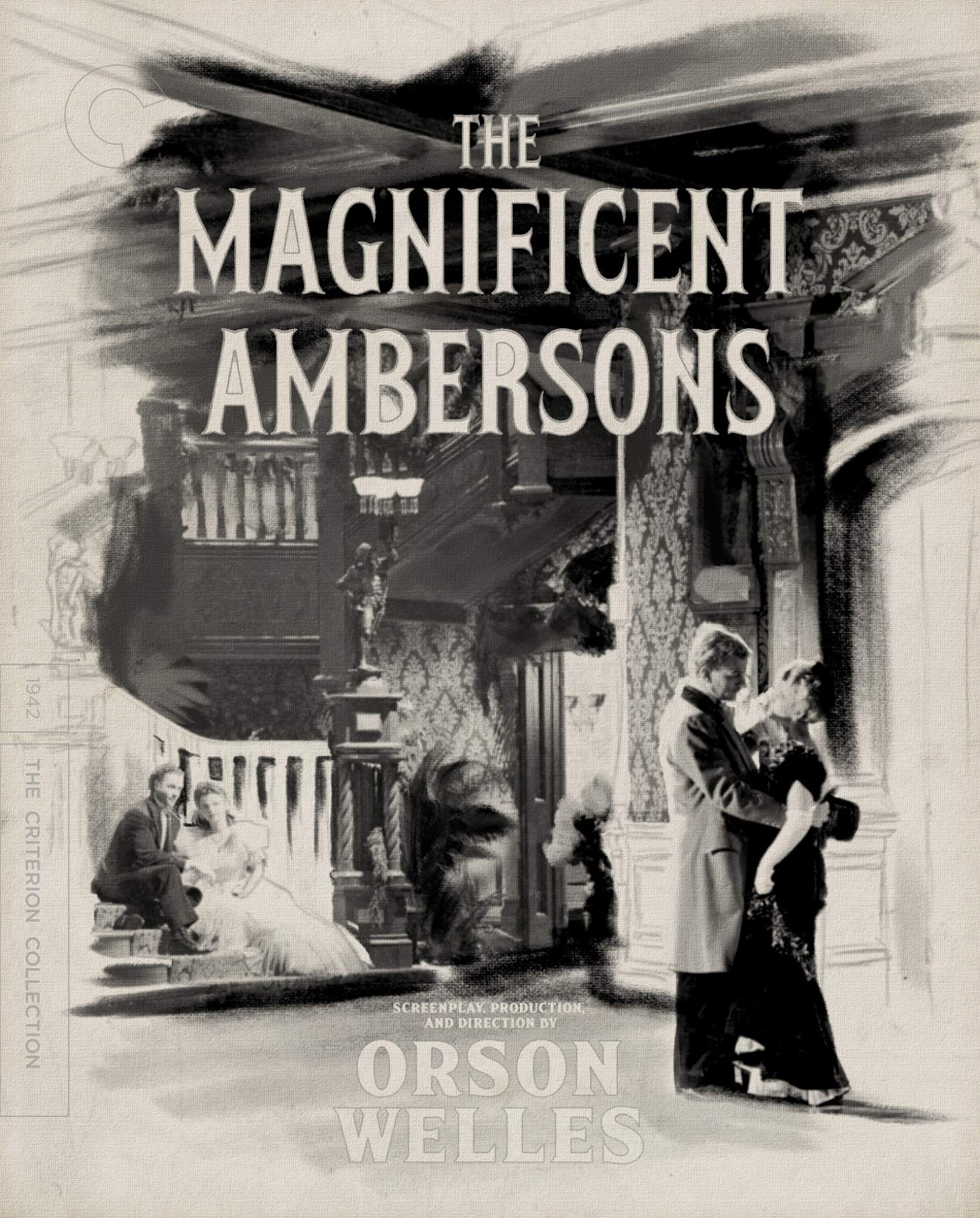

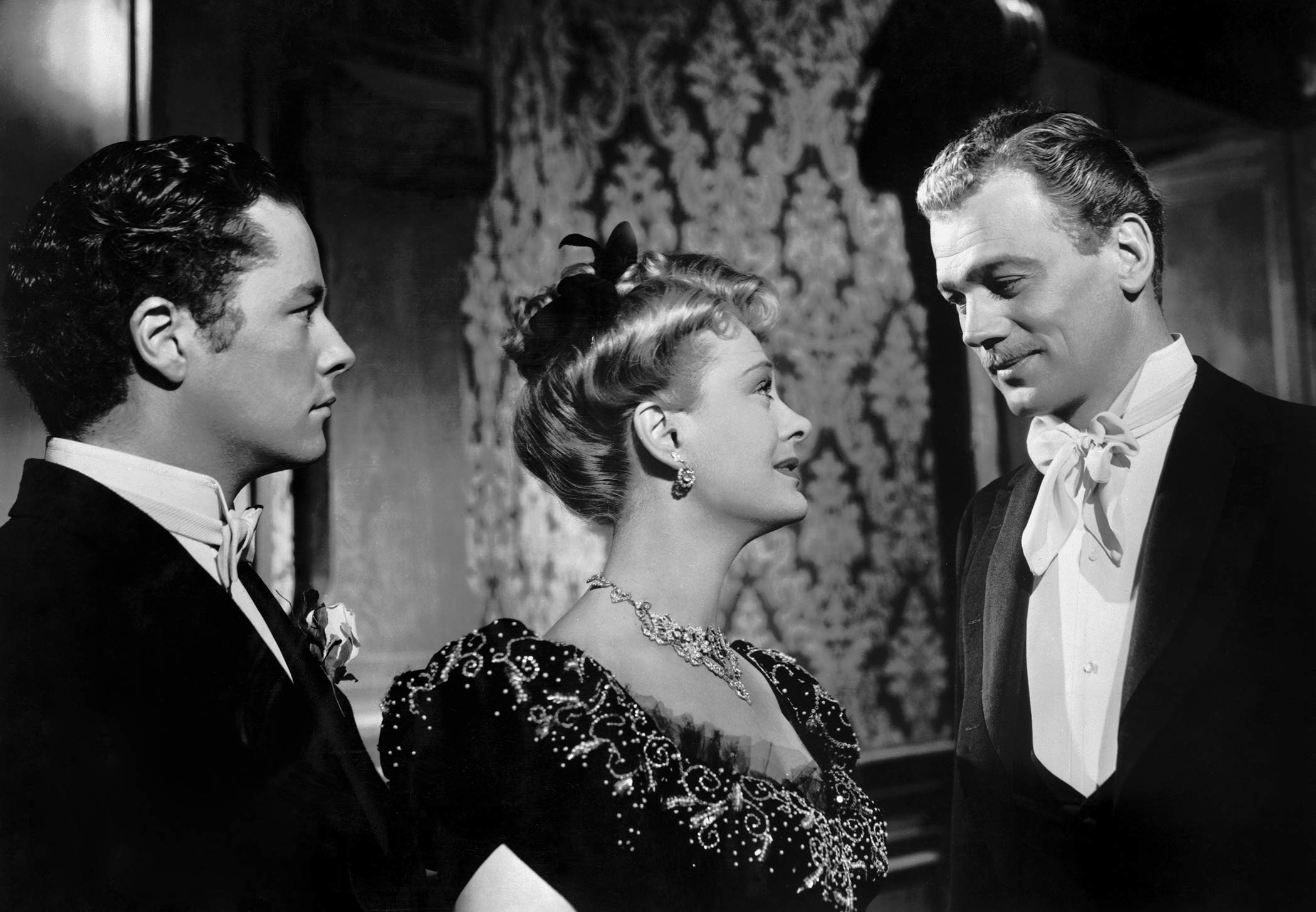
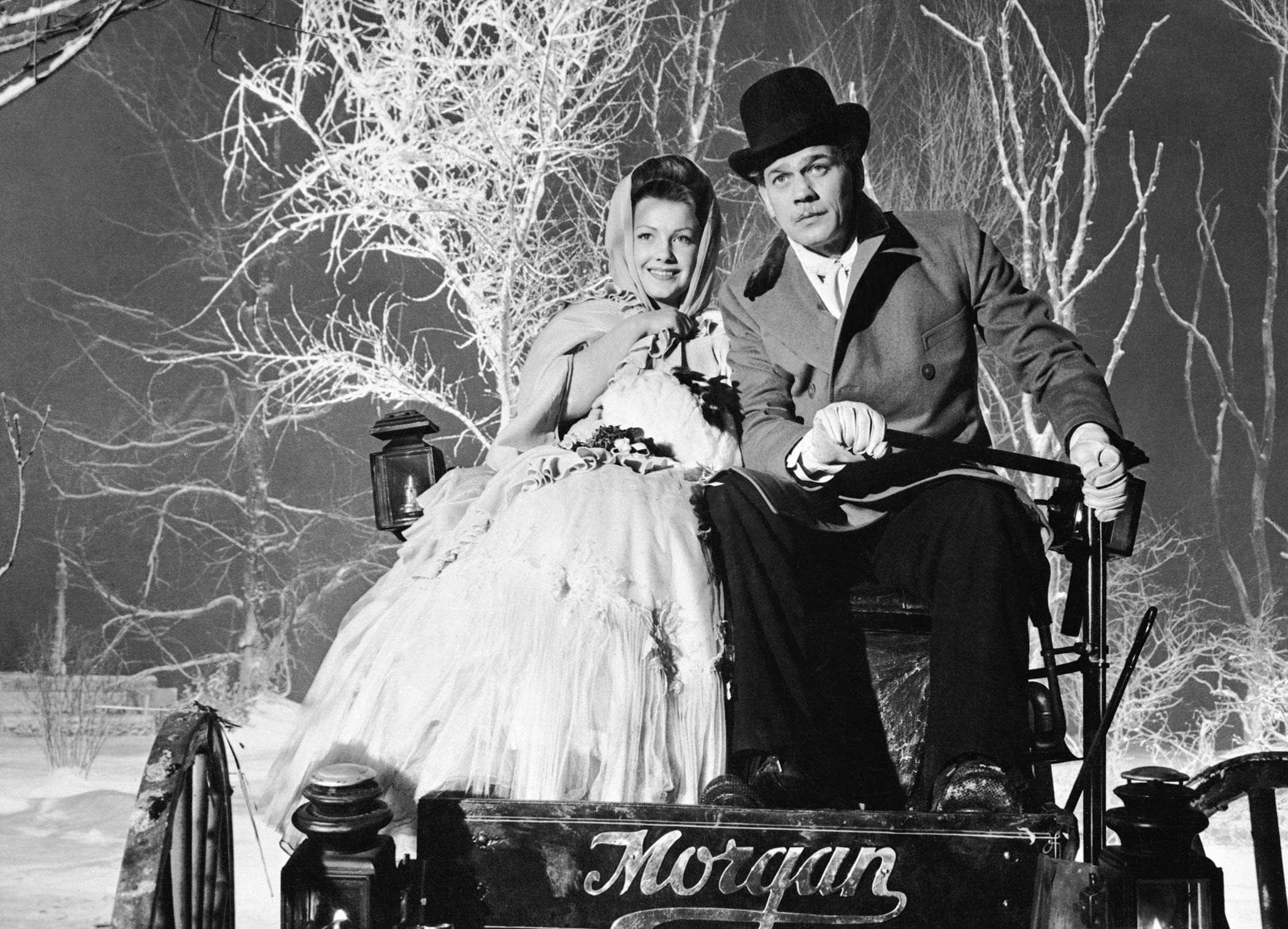
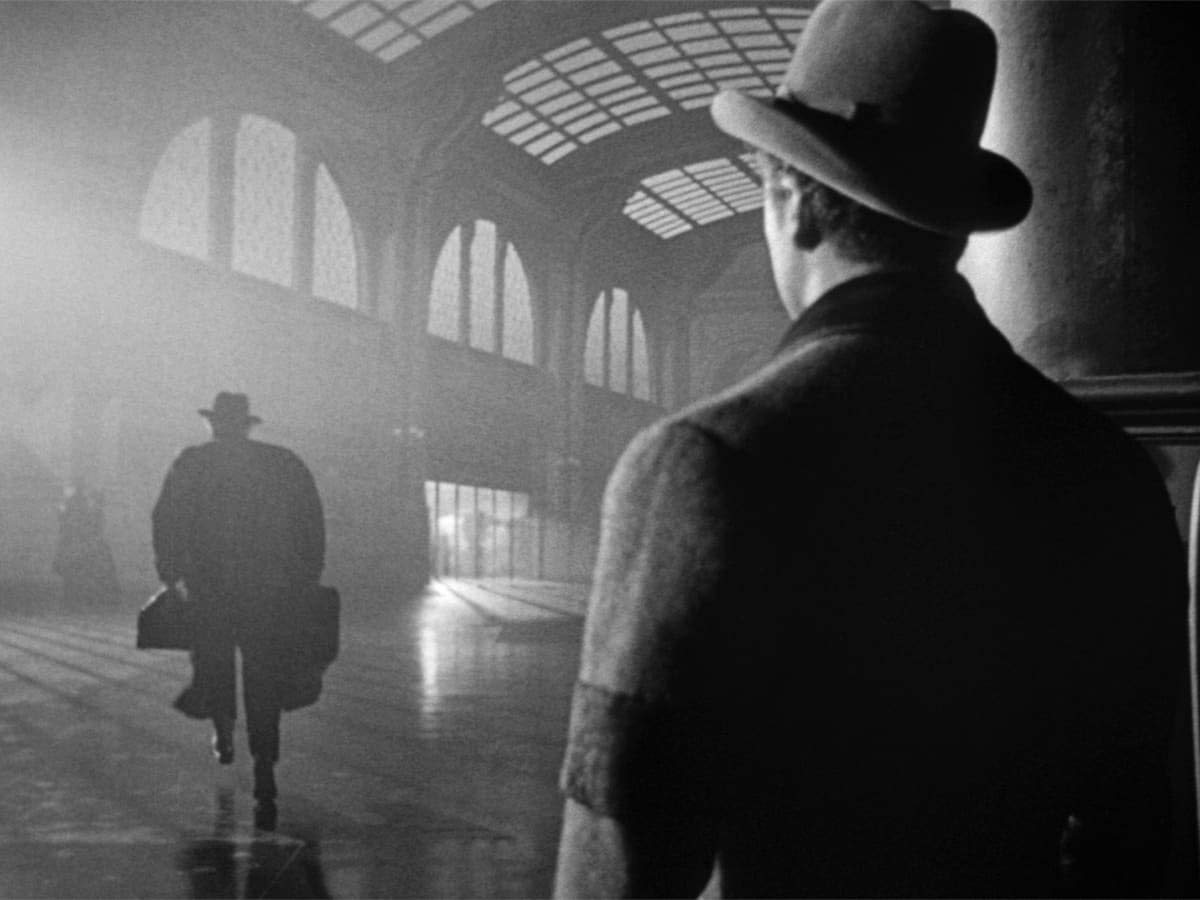
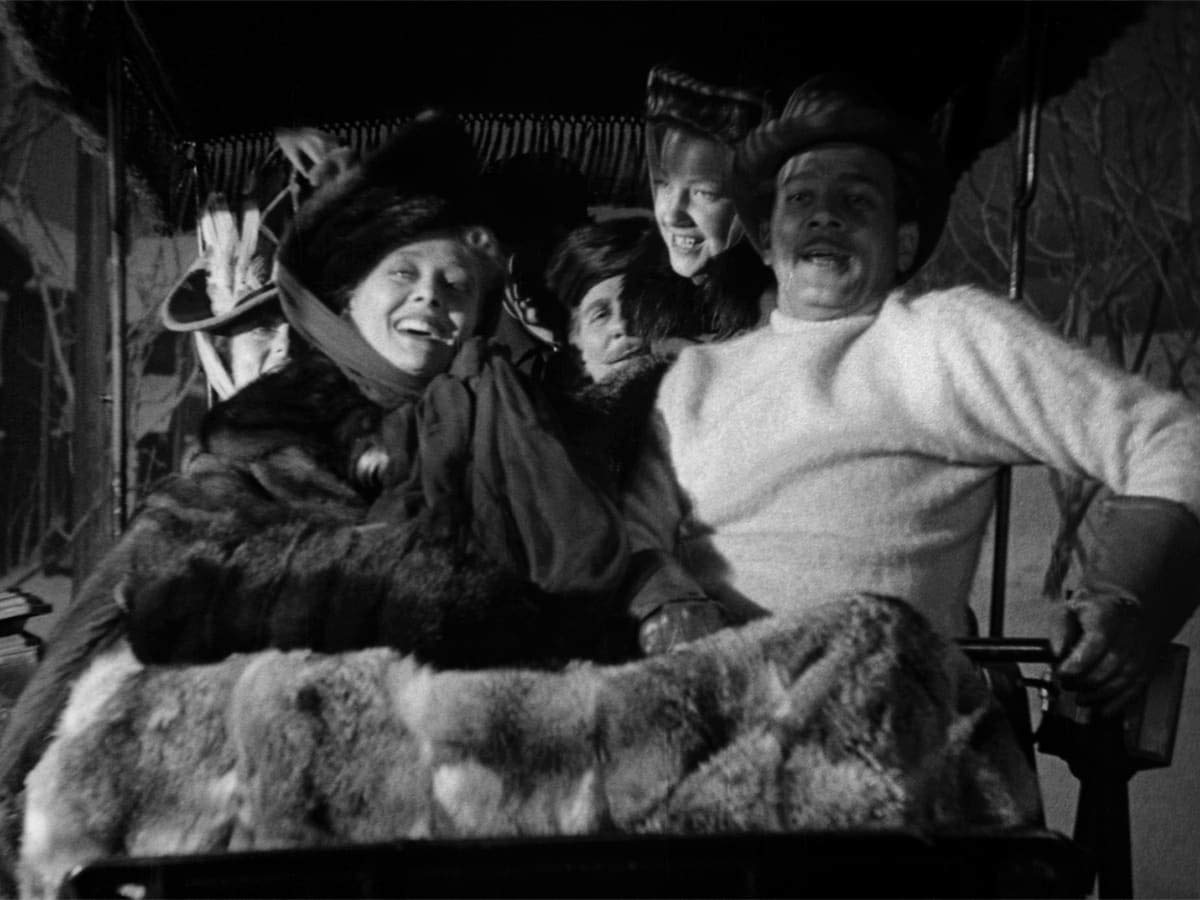
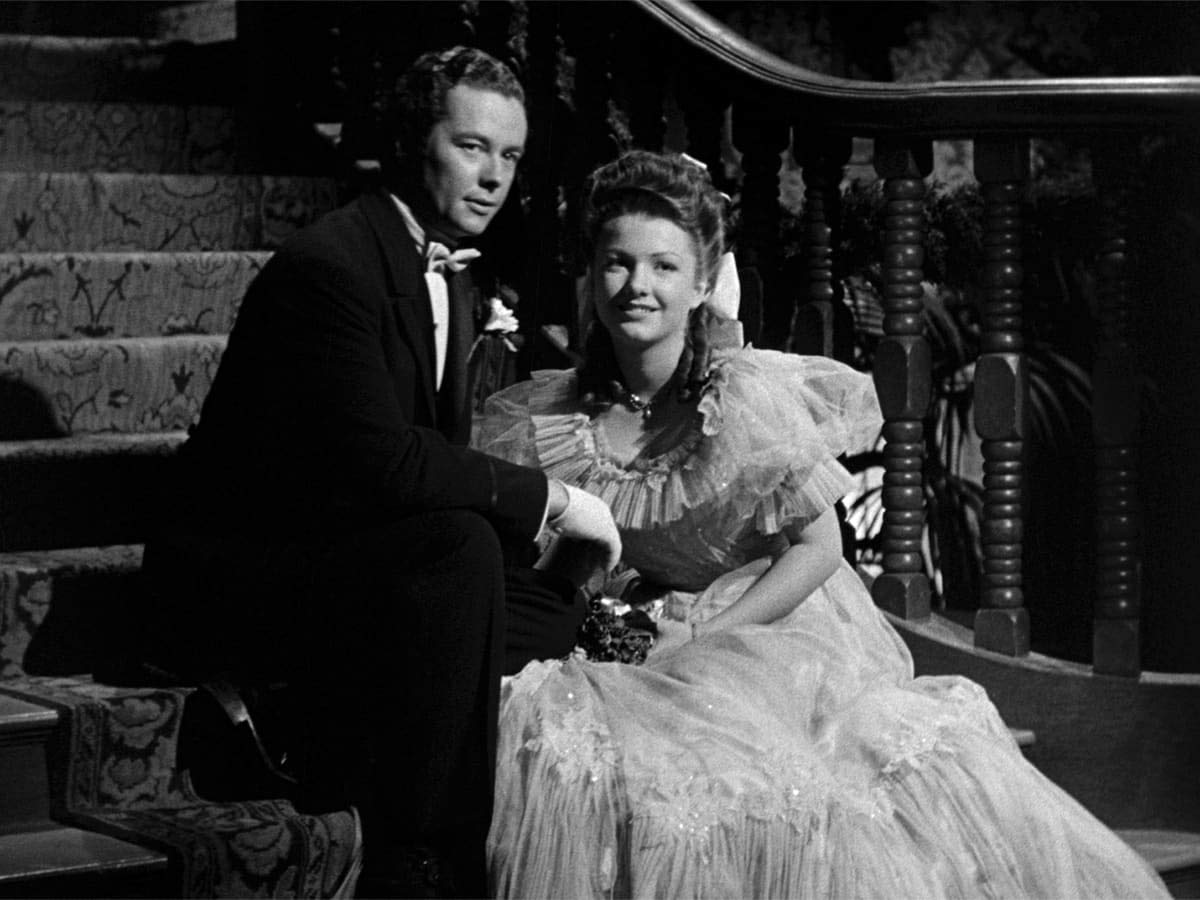
The spoiled young heir to the decaying Amberson fortune comes between his widowed mother and the man she has always loved.
B**T
. A must for your collection
A beautiful transfer one of the best I’ve seen lots of extras and really paint it’s a new picture of how Orson Welles turned his back on this production. A must for your collection
L**E
Great film
Gave this as a gift to a film buff. Movie was excellent but the restoration was just okay. Likely a standard blu-ray would have resulted in the same quality.
S**R
Essential Welles, long review
There's no need to rehash the tragedy of this mutilated masterpiece, all that remains are scraps of a larger whole. The Welles surviving content is magnificent and innovative, the studio reshoot horribly bland and out of place. Film fans will forever wonder what might have been. There's a few missed opportunities on this package (hence the four stars) but first up is what you're here for and that's picture quality. Your experience may differ, I watched this important film through an Epson 4K emulator on a 120'' screen.4K remaster quality: first time viewers will initially be disappointed, especially if you're used to inky blacks and superior sharpness. But remember this film is over 75 years old so tack sharp you won't get. Still, as a huge Welles fan I was let down when the famous opening RKO logo looked faded and not sharp at all. Film grain seemed too prominent and whites slightly blown-out. I was freaking out, did I get shipped a regular dvd?But then a surprise: a second viewing, especially when compared against the dvd from the Kane box, actually did reveal improved details and a more balanced picture. Any previous judder and film specks are all gone. As the film progressed some scenes were strikingly sharp, most especially daytime scenes with George and Lucy. Most impressive are details strewn about the impossibly complicated set design of the Amberson mansion. Those familiar with this film will delight in subtle details strewn throughout the film such as the sheen of satin dresses and the cross-stitching found in men's suits. Your eye will wander around and get lost in newly revealed details, background actors and their actions make you go "I didn't notice that before". Don't let the initial graininess get you down (it gets better) and while it's not 2018 tack sharp this is the best Ambersons to date .Continuing: skin tones were especially improved. Anne Baxter in particular is breathtakingly beautiful here, she positively glows throughout. Even previously unseen acne under Tim Holt's makeup is now visible, remarkable. Dark tones, so critical to the overall look and theme, come off well but don't quite get to inky black. Sequins on dresses really twinkle now, whites seem a bit more crisp, the mansion seems even more expansive and more detailed.Audio: of course, this a mono track for a film of this vintage. No complaints, the dialog came in strong and clear, the Hermann score all things rousing, sentimental and dark. Bottom end was solid and deep.Extras: okay--here's your missed opportunity. First, a reconstruction is sorely missing here. And no I'm not talking about those missing 44 minutes, those appear to be lost forever (but I still hope for a miracle in my lifetime). What would have been spectacular is to use Robert Carringer's indispensable "Reconstruction" book as a template, reshuffle existing scenes and insert stills (for missing acts) reassembled in correct order according to Welles' shooting script. What would have also been nice is a gallery of stills from the set as there are numerous available. The short doc by Welles scholar Joseph McBride is rife with these stills, most impressive is his sketch of the final shot as he remembered it from a rare still that is of course also lost. The absence of more stills makes it especially frustrating when you're teased and you want more! The Boganovich audio-only with Welles is interesting but could have been supplemented with relevant text factoids. Thoughts on the score were surprisingly illuminating explaining subtle scoring techniques and connected themes I was not aware of. The Cavette interview (with an enthusiastic adoring Jack Lemon) was delightful. The included booklet appears comprehensive but with small typeface that is difficult to read. I haven't finished the other supplements.Commentaries: the Carringer commentary is well-known and insightful although unnecessarily critical when discussing acting styles, particularly Agnes Moorehead's universally praised work. Her performance is a tour-de-force and while Carringer wrote a great book he's dead wrong here. Somewhat disappointing is the second more new commentary with two Welles biographers who spent way too much time discussing author Tarkington. I wanted more on the film-making process and behind-the-scenes studio drama. They seemed unrehearsed and missed important moments like the startling (and extremely difficult to pull off) shining eyes of Dolores Costello late in an important scene. Just more missed opportunities.In the end: this is a must for Welles fans, you probably already have it. It could have been better but it's good and certainly an improvement on the dvd. For those just dipping their toes into the Welles pool this may be the one time you read about a movie BEFORE you view it. It will probably be an incomprehensible mess for the uninitiated, it's what's missing that makes the film so mysterious. Read the Carringer book to understand Welles' true intentions, to fill in the missing pieces. Orson Welles mastered radio's theater of the mind, the beautiful fragments of this broken Venus de Milo carries on in that tradition. Recommended.
M**A
A Forgotten Classic from Orson Welles
A tragic romance set at the turn of the century.Orson Welles wrote, directed, and narrated The Magnificent Ambersons (1942), only a year after his masterpiece Citizen Kane, as a phenomenally engaging drama about a failed romance, a spoiled child, and a changing landscape. Welles in crafting a thrilling, funny, and infuriating tale of love lost and rekindled. Welles was not allowed his final cut of Ambersons, but what we got is still one of the greatest films ever directed.The long sweeping shots of the Ambersons' mansion, to the tender close up of the town folks' faces prove Welles' mastery of the camera. The beautiful use of black silhouettes against the dim lights of old houses is stunning. Likewise, the black and white lighting of faces in the dark is breathtaking. Welles makes great use of the old time setting to invent the automobile on screen, recreate old America, and find time to show the town's gossip. It's all as fun as seeing Welles pan up multiple flights of stairs as it is brilliant watching him panning away from Agnes Moorehead screaming in delirium. The unique perspective in how we see characters is unmistakably trademark Orson Welles' directorial style as an auteur.Similarly, I love the use of Bernard Herrmann's score in the background to keep scenes lively or grand in feel. Again, what little remains of Herrmann's compositions in The Magnificent Ambersons is stunning and worth hearing. Welles knew how to incorporate Gothic sounding orchestral music with his intimate romance drama.Aside from Welles' immaculate direction, the real draw to The Magnificent Ambersons is the fantastic acting from the wide cast. The leading actor, Joseph Cotten, gives an excellent and likable performance as the kindly romantic lead Mr. Eugene Morgan. He is so nice and patient, while Cotten plays him with a subtle sense of despair at his loved one's rejection. It's a fascinating performance from Cotten.I have to mention the remarkable actress Agnes Moorehead in her portrayal of Fanny Amberson. I absolutely adored Agnes Moorehead in The Magnificent Ambersons. Her forlorn loneliness as the single Aunt Amberson is really touching as she longs for the unrequited affections of Eugene Morgan. I also liked her versatility as the desperate woman who feels empty to the raving madwoman driven to sadness. Her screaming monologue by the radiator is something to behold and my favorite scene in The Magnificent Ambersons. Moorehead practically steals the show with each moment she is on screen. I found her enchanting. No wonder Orson Welles once said Agnes Moorehead was his favorite actress.Lastly, the other assorted supporting performances are really excellently cast. Dolores Costello as Isabel Amberson is so sad and upsetting that by the end, you truly felt sorry for her. Anne Baxter is a beam of sunshine and empathy in The Magnificent Ambersons that you cannot help but like Lucy Morgan. Ray Collins is very funny as Jack Amberson. Finally, Tim Holt is so revolting and domineering as George Amberson that his character often feels like the villain to the whole story. His antagonism and hatred for Eugene Morgan is so palpable and disgusting that I felt such a strong loathing for Holt himself. It is an incredibly powerful performance in his own regard.Overall, The Magnificent Ambersons is highly underrated and deserves to be revisited by those that have overlooked it. Orson Welles continued his innovative direction from Citizen Kane into The Magnificent Ambersons. I hope this film is not forgotten.
U**R
The Magnificent Definitive Ambersons
A film I remember very well indeed! Beautiful 4k transfer, clean uncompressed audio, 2 commentary tracks, a book of essays, and 5 1/2 hours of bonus features (including a 1925 2-reel silent version) give this film the comeuppance it deserves, even with the missing hour of footage chopped out by RKO. A Blu Ray that’s worth every penny. Definitely read the book to fill in the rest of the picture, which is available as a free download here at Amazon.
G**R
Welles’ Masterpiece Rises Up From the Vault Again!..........(thank you Criterion!).
Finally we have access once again to the Criterion “The Magnificent Ambersons” .......I remember the day I picked up my special order of this monumental classic on laserdisc and finally got to see this film with the commentary, etc. We now have it on Blu Ray disk! If you have not seen or do not know about this great movie, it is a must-see and even considered to be a more important film than Wells’ “Citizen Kane”. The tragedy being that Orson was removed from the finishing of Ambersons and the studio chopped it to hell! Considering Welle’s standing today I know this seems impossible to have happened but it is true. Thus it has Never been seen by anyone in its entirety.This having been said, we are fortunate that we have what we do, but are sadly left wanting for those parts missed. It stands as a towering story in some of the most magnificent black and white ever presented to us on the big screen. It still shines magnificently and is powerful as hell in the truncated condition that we all have been allowed to see.... It is impossible to imagine the depth of power it might have presented to us if Orson had been left to finish what ostensibly was his greatest film.I could run on and on here at great length, but it is not necessary I believe to convince you to see this beautiful film. Once seen you will never, ever, forget Little Georgie Minafer and the disgusting monster he grows up to become. But, he does meet his comeuppance that the townsfolk always wished for him...but at such a cost to family and friends.What a strong, compelling, story and affirmation of karma coming home to roost may have never been presented so well on the screen! This film, for what it is, and what it represents needs to be witnessed by everyone at least once.....Never to be forgotten once seen, and definitely a Must Be Seen Masterpice by the Master Himself, Orson Welles that even after its radical surgery by the studio still shines and shows Wells’ great mastery and vision!Again, thanks to Criterion, we celebrate the power of Great Film!
R**R
Welles' classic masterpiece finally comes to bluray for the first time! It's never looked better!
Now available for the very first time on Blu-ray, the The Magnificent Ambersons was Orson Welles' immediate follow-up film to his classic masterpiece Citizen Kane.The Magnificent Ambersons is very different from Kane, an unusual blend of a melodrama and a movie with a much deeper message--the first film ever made about the social impact of a technology upon the way people live. In this case, that technology is the automobile.At the films opening, Eugene Morgan (played by Joseph Cotton) is one of the early pioneers developing these new-fangled things then called horseless carriages. He is not well to do financially and is trying to make a success of himself in the world, while the Ambersons are then among the richest and most powerful families in the city.While hoping to win the hand of the then also young Isabel Amberson, one night Morgan drinks too much and makes a clumsy and embarrassing spectacle of himself. Isabel, in a fit of anger at Morgan, agrees to marry lovelessly into the well to do Menifer family instead.As one far-seeing neighbor points out, Isabel can't possibly love Menifer, so she'll pour all her affection into her children and raise the worst gang of spoiled brats the town has ever seen! The only thing the neighbor gets wrong in the end is that Isabel has only one child, George, who she subsequently spoils rotten, exactly as predicted.As Morgan's business thrives and the automobile eventually replaces the horse as the primary form of transportation, large numbers of people move from the inner city out to the suburbs, reducing the value of the inner city real estate that the Amberson's fortune is based upon.In a reversal of fortunes, Morgan becomes rich and powerful while the Amberson's fortune eventually faulters as a direct result of the social changes Morgan's beloved machines bring about.There are insightful observations about this technology and its' effect on our lives made in this film like, "The faster we're carried from place to place, the less time any of us seems to have on our hands". And, in one speech, after considering the possible negatives of the machines he helped to pioneer, such as the death of the long established social custom of neighbors sitting on their front porches conversing with other neighbors as they'd pass by in slow moving horse drawn carriages, and also the very quickly rising number of highway deaths, Morgan regretfully admits that, in time, after society has seen the outward social changes they bring about, "We may find that for all it's benefits, the automobile had no place ever being invented."Overlayed on top of this tale of technology and change is the story of Isabel's son, George Menifer (played by Tim Holt), the last of the Amberson line, the spoiled child who eventually grows into a spoiled man--a person for whom most of the town prays he will one day get his "come-uppance" for all the harm he continuously does to others with his over inflated ego and absurdly massive sense of self-importance.By the time the reversal of fortunes finally delivers some that much deserved "come-uppance" to the once so egotistical George, his importance to the town has dwindled to the point that those who prayed so fervently for it once upon a time have long since forgotten all about it--and they have forgotten all about him as well.To further complicate matters (and what's a movie without complications), there is Eugene and Isabel's love (which has never completely died over the years) to deal with--and which the egotistical and spoiled George Menifer simply cannot tolerate, even though it's not acted upon by Eugene and Isabel--and even though George himself has fallen hopelessly for Morgan's very own daughter.Yet, even though Eugene and Isabel's affection is harmless, being who and what he is, spoiled George is not the kind to accept it's existence and let things stand quietly as they are. For the sake of those who've not seen the film yet, I won't give away any more of the film's story details.The acting in The Magnificent Ambersons from every cast member is absolutely stellar--with the biggest standout performance being Agnes Moorehead's. Nobody on Earth could have delivered a better performance as the far too often disrespected, spinster aunt Fanny. This is one of the greatest performances in the carreer of one of America's greatest actresses! And, as indicated, every other cast member hands in a spectacular performance as well--and even all the bit players performances are top flight!I consider this incredible work of genius to be a masterpiece, but a "flawed" masterpiece for the reason that, as incredibly good as it is, it was once an even better film. Unfortunately, we will never see the film Welles actually intended for us to see. The film was re-edited by the studio (without Welles' permission), losing more than a half hour (some say nearly a full hour) of footage, and with a new final scene, shot without Welles' knowledge, replacing his original one.Although this is not Welles' film as he intended it to be seen; so many, many long moments of pure genius still remain that they give us a tantalizing taste of what the original film must have been like--and, I must add, it is still a very good classic film, even after the studio's re-editing process.When test audiences were originally shown the film, it was foolishly previewed at a theater full of, primarily, teenagers and young people who'd paid their money to come and see a fun and lighthearted comical escapist picture starring Dorothy Lamour, but were fed instead, by utter surprise, a serious, dark and dramatic intellectual thought-piece. It was the opposite of what they'd come to see so, naturally, they didn't care for it at all (which subsequently scared the studio into making all of the unauthorized changes to the film).Although a second preview held shortly afterward for a more conducive audience, who knew what they'd be seeing ahead of time, yielded a phenomenally better reaction (with many actually referring to The Magnificent Ambersons afterward as THE BEST MOVIE THEY'D EVER SEEN!), the studio still went ahead and made the alterations anyway, just to be safe. After the re-editing, even more people liked the film than before and said they thought it was still a good movie (and it IS still a very good film), so the studio was perfectly happy--but, nobody called it "THE BEST MOVIE THEY'D EVER SEEN!" anymore. Something that had elevated the picture to an even higher level had been lost in the re-editing process.Welles' previous film, Citizen Kane, didn't do well financially when it was first released--it was too far ahead of its' time. Yet, eventually, it came to be regarded as one of the greatest movies in the history of American cinema and has subsequently made plenty of money over the years. Unfortunately, Citizen Kane was still considered a flop by the studio at the time The Magnificent Ambersons was made, and they weren't about to accept the idea of losing money on another Welles picture. And so, unfortunately for future film fans, the movie was still re-edited by them anyway, extraordinarily positive reviews from the second test screening or not!It looks like The Magnificent Ambersons was originally more than likely a masterpiece an a scale with Kane (Welles thought his original version to be his greatest film--even better than Citizen Kane by his own estimation). But, unfortunately, because the studio had altered it so radically, later audiences no longer had the original masterpiece to see and fall in love with over the subsequent years.That's too bad for us cinema fans of today.After re-editing, RKO pictures didn't save the excised (now "lost") footage, making it impossible to restore the film to it's original state.The Magnificent Ambersons will therefore always remain a very, very good classic film, but also one which is somehow less than it was originally--and that is why I call this masterpiece a "flawed" one.As good as it is, one can only guess with a deep sense of awe how even more incredibly fantastic Welles' original version must have been in order to illicit from audience members at the second test screening the kinds of superlative reactions that it did.This new Criterion Blu-ray is the best version possible to make of this classic film at this time. The original negatives of it were destroyed, so it was constructed, instead, from the best theatrical prints available.Although not perfect, it's still much, much better by far than any other version that's ever been available before--and, with this film's renowned photography, the improvement this Blu-ray affords makes a real difference to the overall viewing experience.This is the first time that I have ever seen this film look so good and it really is a treat to finally get to see this wonderful classic film the way it is now presented by Criterion.If you are a Welles fan, a film student, or just a fan of this great classic film (and I AM a big fan of it--alterations and all), then this Criterion Blu-ray is unquestionably the very best version of Welles' The Magnificent Ambersons to consider viewing.I give this Criterion bluray a very high recommendation.
A**R
A review of the Criterion Blu-ray
The great enigma and question with The Magnificent Ambersons is always, what might have been? What was Welles' first cut, the preview cut, like? Clearly the audience who saw it wasn't having any of it at its long length, but that's why they previewed films then. Plus, there can always be reasons why a preview audience might not respond well - pairing it with a film that isn't a good pairing, no one knowing what they were in for - many reasons. But we all know what happened - Orson was away, the studio ordered many cuts and reshoots and we're left with an eighty-eight minute version of Ambersons. The common line is that the Welles stuff is a masterpiece and the reshoots are so tonally different that they really hurt the film - and that's all valid, and we have no way of knowing, really, how it would have all played had Welles come back and done his job - this all falls on Welles in the end, but that is the story of his life. What is clear is, that despite some beautiful moments, some startlingly great sequences, at eighty-eight minutes it seems like a slog - so whether more scenes would have helped is anyone's guess. Certainly the reshot and added scenes are flat as a pancake.But let's get to the transfer. It's taken a long time for Amberson's to come to Blu-ray. The DVD was barely okay. This new 4K transfer from a nitrate fine grain looks very good, but a nitrate fine grain is not the original camera negative, which one must assume is long lost. We're still generations away from the original negative - and when you add to that a huge number of opticals, especially in the first twenty minutes of the film, the result is exactly what you'd expect. When we're out of the opticals, things look very nice for the most part, and, as I've said, it's a huge step up from the DVD and any fan of Welles will need to have this. And there's enough that's great here to make the purchase worthwhile. I haven't watched any of the supplemental features, but I'm not that big a fan of them.
R**N
A profound and beautiful masterpiece
Orson Welles’s debut film “Citizen Kane” has often been proposed as the best film ever made—but many Welles admirers harbor still greater respect for his second effort, “The Magnificent Ambersons.” It’s a quieter film than “Kane,” dominated by extraordinary long-take scenes impeccably composed and breathlessly sustained by a flawless cast. Incidentally, Welles doesn’t appear in this one, but he delivers the eloquent narration and, really, is detectable in every exquisitely right directorial decision.
J**4
Superb Criterion release of Welles' second "masterpiece."
Beautiful restoration of Orson Welles" brilliant retelling of the rise and fall of an American "aristocratic" family at the turn of the 20th century. (Georgie Menafer's continued diatribes against the budding automobile industry seem eerily prescient!" The brilliant black and white cinematography shines in this new release which much mirrors the acclaimed 1980s CAV laserdisc in its myriad, fascinating extras-- with three commentary tracks! THIS is the one to have!!
R**R
Orson, with respect
Very impressive reconstruction of The hundred-dollar Criterion laser disc set (that I bought, initially in the mid-1980s) with not one, but two, new commentaries and a raft of other new features. The film looks better than ever. Of course, the extras all emphasize the unauthorized butchery of the film by RKO; so no matter how exquisite the transfer, the film is ultimately disappointing, Still, there are flashes of brilliance for the first hour, but the later homogenization of the storyline hurts. All of the extras try to reconstruct things via discussion and stills.
C**R
A Great Film!
I never get tired of watching this beautiful film. I do get tired of being told that the film was ruined by RKO and Robert Wise. By the controversial upbeat ending the film has proven it's greatness and delivered it's message. I really am a huge Orson Welles fan and I know he wasn't pleased with the film. BUT, I truly believe that "Ambersons" is a film that should be celebrated and not mourned.
S**H
The entire movie is out of sync.
While the movie was enjoyable, and the special features were interesting, ( including a segment of the Dick Caveat show), the syncing of the dialogue was painful.After watching I touched base with Criterion. While they were responsive, they brushed off the syncing issue as specific to my machine. The reality is that I know 2 others who had the same problem.Bottom line: STAY AWAY FROM THIS RELEASE.
C**7
Magnificent Welles Picture Despite Tragic Editing
This is a wonderful addition to the Criterion Collection. For instance the sleighing scene is like a Currier and Ives print come to life. At the same time you could howl at the heavens over the lost 41 minutes butchered by the studio since Welles didn't have control. As one of the interviewees said: "Just dumped in the ocean." Still a great picture featuring a stellar performance by Agnes Moorehead.
C**C
Great buy!
Disc plays great. Of course movie was wonderful. The extras have been very interesting and enjoyable. Packaged very nice and shipped well. Great buy. Recommend.
Trustpilot
5 days ago
3 days ago